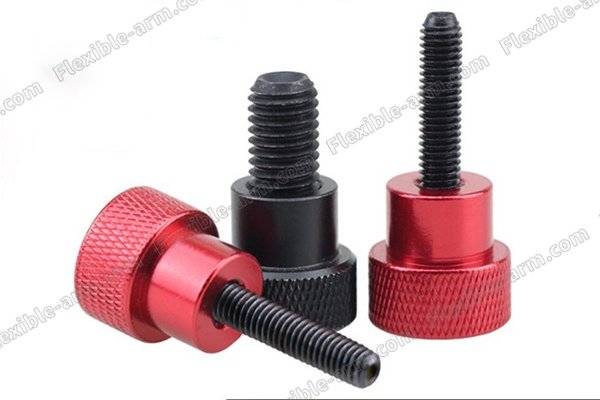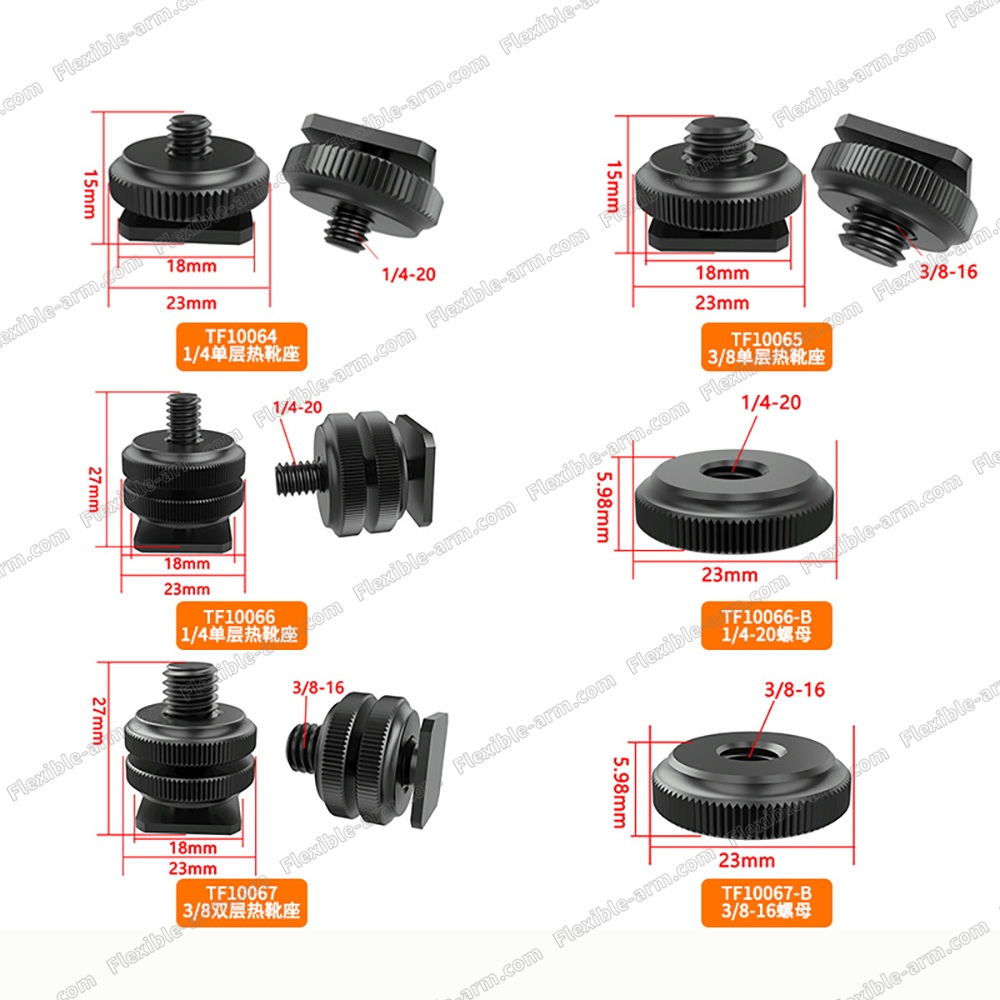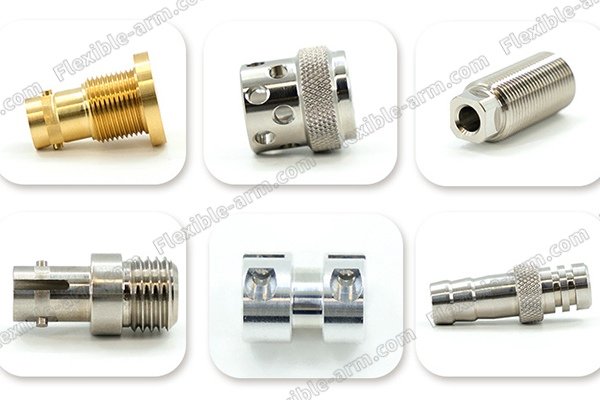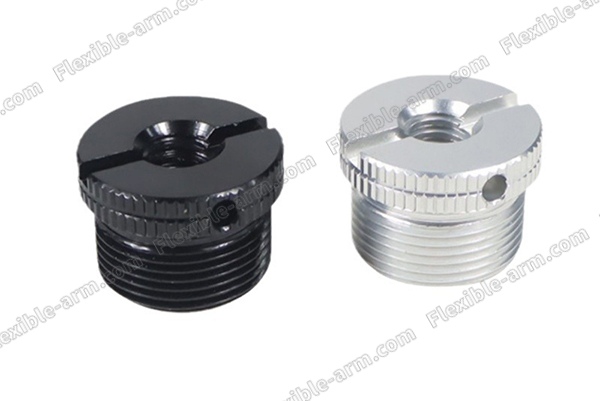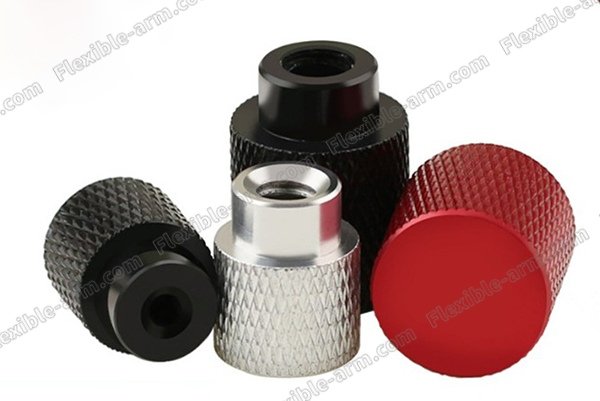
In precision manufacturing, Aluminum CNC Machining Parts are one of the most in-demand solutions across industries like aerospace, automotive, electronics, robotics, and consumer goods. Why? Because aluminum combines strength, corrosion resistance, machinability, and affordability—all essential for producing high-performance parts with tight tolerances.
If you need reliable, scalable, and cost-efficient production, aluminum CNC parts deliver. Below, we break down the key benefits, machining processes, and industrial applications—highlighting why aluminum continues to dominate the CNC machining market.
Aluminum is lightweight, yet strong. It’s easy to machine, has excellent thermal conductivity, and offers a good strength-to-weight ratio. These properties allow for fast cutting speeds and minimal tool wear, keeping production efficient.
That’s why manufacturers favor Custom CNC Aluminum Components for everything from small brackets and enclosures to large structural frames. Aluminum is also non-magnetic and naturally corrosion-resistant—important features for electrical housings, medical tools, and aerospace components.
In high-tech applications, precision is everything. From the automotive sector to industrial automation, companies depend on Precision CNC Aluminum Parts to function in extreme environments. A single miscalculation can result in mechanical failure, downtime, or even safety hazards.
CNC (Computer Numerical Control) machining eliminates such risks. The technology ensures accuracy to the micron level, with repeatable performance across hundreds or thousands of units. This is crucial in regulated industries where parts must meet strict compliance standards.
For parts with cylindrical shapes—think shafts, spacers, connectors, bushings—CNC turning is the go-to process. Aluminum CNC Turning Parts are created using high-speed lathes that rotate the workpiece against a fixed cutting tool. The result: perfectly round parts with exceptional surface finishes.
Turning allows for complex external and internal geometries, threading, and grooving, all while maintaining tight tolerances. Whether you need 100 parts or 100,000, CNC turning makes high-volume production both fast and scalable.
Not all CNC parts are equal. For high-stakes applications, you need High-Precision Aluminum Machined Parts. These are produced using multi-axis CNC mills and lathes, ensuring flawless dimensional control.
Medical, defense, and aerospace industries rely on these components daily. Think surgical instruments, drone frames, sensor housings, and satellite brackets. A part just 0.01mm off spec is unacceptable. High-precision machining eliminates error and builds confidence in your final product.
When off-the-shelf doesn’t cut it, go custom. OEM CNC Machining Aluminum Services allow you to bring your own CAD drawings and get parts manufactured to exact specifications. No compromises.
OEM services typically include:
This is ideal for product developers, equipment manufacturers, and startups who need a production partner—not just a machining vendor.
Not every part is round. For more complex shapes, contours, or holes, CNC milling is essential. CNC Milling Aluminum Components are created using 3-, 4-, or 5-axis machines that can cut along multiple planes.
This enables the production of:
Modern milling machines offer high-speed spindles and automated tool changers, allowing for quicker turnaround and tighter accuracy than traditional machining methods.
Aluminum is already corrosion-resistant, but anodizing takes it a step further. Anodized CNC Aluminum Parts undergo an electrochemical treatment that hardens the surface, improves wear resistance, and allows for dye coloring.
Benefits of anodizing include:
This makes anodized parts ideal for consumer electronics, marine equipment, automotive parts, and even luxury accessories.
Rapid prototyping is a critical stage in any product development cycle. CNC machining is the most reliable method for producing real-metal prototypes that can undergo functional testing, mechanical evaluation, and visual review.
CNC Machined Aluminum Prototypes allow engineers to:
Unlike 3D printing, CNC-machined prototypes match the mechanical properties of production parts, making them suitable for beta testing and pilot launches.
Not all manufacturers are created equal. Selecting the right CNC Aluminum Parts Manufacturer means choosing a partner who understands materials, tolerances, deadlines, and industry requirements.
Look for a manufacturer with:
A good manufacturer will also help you optimize your design for machining, potentially saving you thousands in production costs.
If you need lightweight, high-performance parts with tight tolerances and fast turnaround, Aluminum CNC Machining Parts should be your first choice. They offer the perfect combination of machinability, durability, and design flexibility.
Whether you’re sourcing Custom CNC Aluminum Components, Aluminum CNC Turning Parts, or need OEM CNC Machining Aluminum Services, CNC machining gives you the control and consistency you need.
From CNC Milling Aluminum Components to Anodized CNC Aluminum Parts, and from CNC Machined Aluminum Prototypes to full-scale production by a skilled CNC Aluminum Parts Manufacturer, the path to quality starts with choosing the right process—and the right partner.
